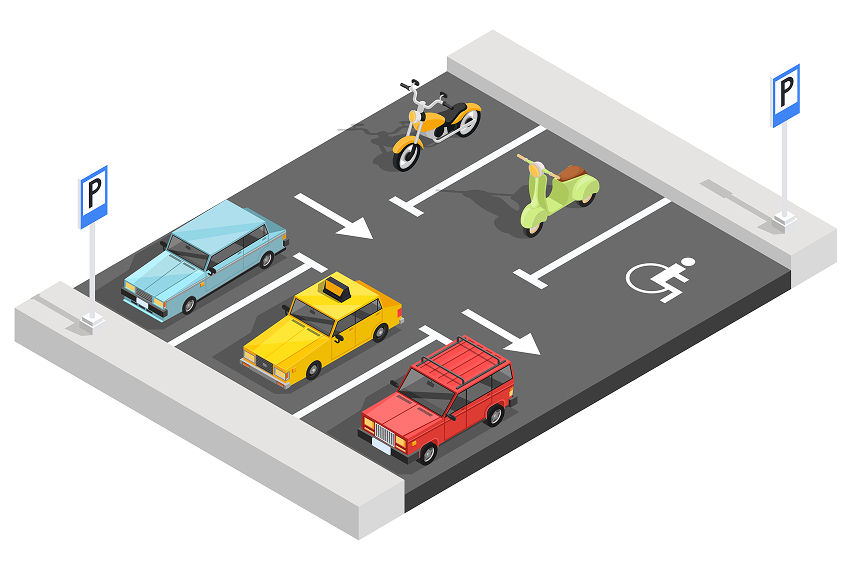
A car owner in the Philippines usually gets insurance for two reasons: to fulfil legal requirements and to get financial protection.
But what if the very thing you relied upon denies you help when you need it the most? Won’t it be heartbreaking? It surely would be, plus the added financial strain that will fall upon you, for which you weren’t even prepared, adds to the stress. Therefore, it’s good to be extra prepared and be aware of all the things that could lead to the denial of your claim.
The car insurance claim filing process in the Philippines is complex, involving numerous paperwork and formalities. However, the policyholder needs to understand the process to navigate the claim process smoothly, along with the common reasons for claim denial. Doing so will equip you with the proper knowledge to take protective steps.
In this article, we discuss car insurance claims, including reasons for denial and the process for appealing a denial, along with a step-by-step guide and documentation for submitting a claim in the Philippines. This will prepare you to get the financial protection you deserve (provided you are correct).
Car Insurance Claim in the Philippines - Process & Documentation
In the Philippines, following the claim process with precision is essential, as only this will ensure a successful claim filing. This process involves an understanding of the necessary steps and the submission of required documents. While we have already discussed the car insurance claim process in detail, here’s a quick recap for a smooth and efficient claim-filing experience.
Documents required -
- Police report
- Photos of the damage
- Proof of vehicle ownership (OR/CR, driver’s license)
- Medical bills
- Valid government ID
Step-by-step instructions to file a claim -
- Contact your insurance provider - To notify the insurer about the incident, you can make a call or visit the office personally.
- Gather the required documents - Ask your insurer about the documents required for the claim filing process. Gather them and make copies as well.
- Submit the claim - Duly accomplish the claim form provided by the insurer; it can be done offline and online(depending on the availability).
- Assessment - The adjuster from the insurer will investigate and assess the vehicle and /or accident scene and evaluate the liability.
Verdict - The insurer will announce whether the claim has been approved or denied. While the former will take over the financial responsibility from your shoulders, the latter will put you in deep trouble. Therefore, it is essential to analyse the top reasons for claim denial, so that you don’t make these mistakes and face no trouble.
 Photo from Shutterstock
Photo from ShutterstockTop reasons for the denial of a car insurance claim
As mentioned above, by understanding the intricacies of car insurance claim denial, Filipino policyholders can save themselves from unexpected financial burden. Let us begin exploring the various reasons for car insurance claim denial -
Car insurance policy exclusions & coverage limitations
One of the top reasons for denying a car insurance claim is policy exclusions and coverage limitations. Policyholders are therefore advised to read the fine print in their insurance policy, as this helps avoid unpleasant surprises later.
Example - If a car insurance policy does not offer coverage against acts of god, your claim would be denied if the car got damaged due to floods, earthquakes, typhoons, etc.
How to avoid - Thoroughly review your car insurance policy before sealing the deal. See what is covered and what’s not; this will give you clarity on the inclusions and prevent claim denial.
Misrepresentation of information
Another significant reason for insurance claim denial is filing false claims with misrepresented information. Such fraudulent claims lead to severe consequences, like policy cancellation and legal action against the policyholder. Remember, insurers have sophisticated methods in place to detect fraudulent claims; it’s not worth it to take such risky actions.
How to avoid - Make sure all the information you provide is correct and supported by proof (picture or witnesses), if possible.
Technical violations
A technical violation of the insurance policy's terms and conditions can lead to the denial of the claim. Remember, an insurance policy is like a contract, and you are required to follow its terms to avoid coverage denial.
Example - if you fail to report the incident within the specified timeline, your claim will be denied.
How to avoid - Thoroughly go through all the policy terms and conditions, and do as it says to avoid denial.
User-specific reasons for denial
While these are some of the most common and basic reasons for claim denial, there are some more issues concerning premium payment, vehicle usage, procedural mistakes, and driver-related issues that could void your insurance coverage.
Let’s have a look -
Premium payment issues leading to the denial of the claim
Lapsed policy - When the premium payment is not made within the specified timeframe, the policy gets terminated. Most insurers offer a grace period as well, during which a policyholder can make up for delayed payment without penalty. If still not paid, the policy will lapse.
Premium payment default - When the policyholder fails to make the required premium payments on time, it is considered a default and leads to denying of claims. To avoid this, make timely payments and contact the insurer in case of any difficulty.
Driver-related issues leading to the denial of claim
Unauthorised driver behind the wheel - Insurance policies mostly specify who is covered to drive the insured vehicle; therefore presence of an unauthorised person behind the wheel can lead to claim denial. Make it a point that all drivers are listed in the policy, and if there is an addition, make sure it is added.
Driving under the influence - Any act of reckless driving, like driving under the influence, can get your claim rejected. Such high-risk behaviour voids the policy terms and is looked down upon. Make sure to adhere to safe driving practices to enjoy insurance coverage.
Valid driver’s license & vehicle registration - If, as a policyholder, your driver’s license expired, was suspended, or was revoked at the time of the incident, the insurance company might refuse to honour your claim. The same is the case with vehicle registration; if it is not up-to-date, it will violate policy terms and deny coverage.
Vehicle-usage violations leading to coverage denial
Maintenance neglect - Your insurance protection can get voided if the policyholder suspects negligence in regular maintenance.
Pre-existing damage - If a policyholder fails to report a pre-existing damage to the insured vehicle while purchasing the policy, the claim will be denied.
Personal vehicle used for commercial means - Most standard car insurance companies do not cover vehicles used for commercial activities like delivering goods or providing transportation services. Here, we’d suggest that you get appropriate coverage as per your vehicle usage to avoid claim denial.
Undisclosed vehicle modifications - Modifications made to a vehicle can affect its safety quotient. Therefore, every time a policyholder makes any such changes or alterations, it is essential to notify the insurer, or else there will be consequences.
Procedural mistakes leading to claim denial
Missing claim filing deadline - Usually, insurance policies have strict timelines within which a claim must be filed. Failure to adhere to these deadlines can result in denying the claim. Check your policy documents for the specific timeframe for filing of claim.
Incomplete or incorrect documentation - Note, if the submitted documents are incomplete or contain errors, the claim is likely to be denied.
Failure to report to proper authorities - Insurance policies mostly require that incidents be reported to relevant authorities, such as the police, within a specified timeframe.
 Photo from HDFC
Photo from HDFCAppealing denied claims in the Philippines
Do not consider a denied claim as the end of your pursuit of financial compensation. As there are ways to appeal against denials. The chronological order to do includes -
- Going for the insurance provider’s internal review process: Most insurance companies have a formal process for reviewing denied claims.
- Escalating the matter to the Insurance Commission: If the internal review does not result in a favourable outcome, policyholders can escalate their complaint to the Insurance Commission.
- Take legal action: If the internal review and the Insurance Commission's intervention do not resolve the issue, pursuing legal action may be the next step.
Bottom line
Several common factors often lead to denying insurance claims in the Philippines. The list includes premium payment issues, policy exclusions, unauthorised drivers, and vehicle usage violations. Still, if your insurance claim gets denied, make it a point to appeal against the decision - internally through the insurer’s review process, going to the IC, or taking legal action, if required. However, all this trouble can be avoided, and you can ensure a fair treatment by your insurer by understanding your policy and the claim process thoroughly.
FAQs
Q1.What are some of the common reasons for car insurance claim denial in the Philippines?
Ans. Several reasons can lead to the denial of the claim, including policy exclusions, lapsed policies, payment default, technical violations, and fraudulent claims.
Q2.How can you avoid the denial of a car insurance claim?
Ans. If you want to avoid having your car insurance claim denied, make sure to read and understand your policy thoroughly, provide complete information, do not make unauthorised repairs, keep the policy active, and follow the proper claim process.
Q3.What are the consequences of missing a car insurance premium payment?
Ans. Missing the premium payment can lead to severe consequences, such as the policy lapse and claims being denied. To avoid such extreme after-effects, make sure to clear the dues during the grace period.
Q4.Is it possible to appeal against a denied claim?
Ans. Yes, Filipino applicants with denied insurance claims can appeal. This can be done via the insurance provider’s internal review process. If that doesn’t help, you can approach the Insurance Commission or even take legal action, if necessary.
Q5.What is the process to file insurance claims in the Philippines?
Ans. If involved in an accident or collision, the first thing to do after checking for everyone and your safety and well-being is to notify the insurer. Thereafter, you’ll be required to submit the required documents and follow the steps outlined by the insurance provider.
Q6.What if I use my vehicle for commercial purposes? Will it impact my insurance coverage?
Ans. Absolutely. Using your vehicle for commercial purposes can lead to a denied claim if you don’t have proper coverage.
Q7.My insurance claim got denied due to a technical error. What shall I do?
Ans. First, review your policy terms, understand the violation, and consider appealing the decision. Ensure that you make the necessary adjustments to your policy to prevent future issues.
Q8.How can I ensure that I fully comply with my insurance policy terms and avoid claim denial?
Ans. We’ll suggest that you maintain proper records, disclose all the information, and adhere to all the policy conditions.
Also Read: Car insurance claims in the Philippines: Common scenarios and claim types explained









